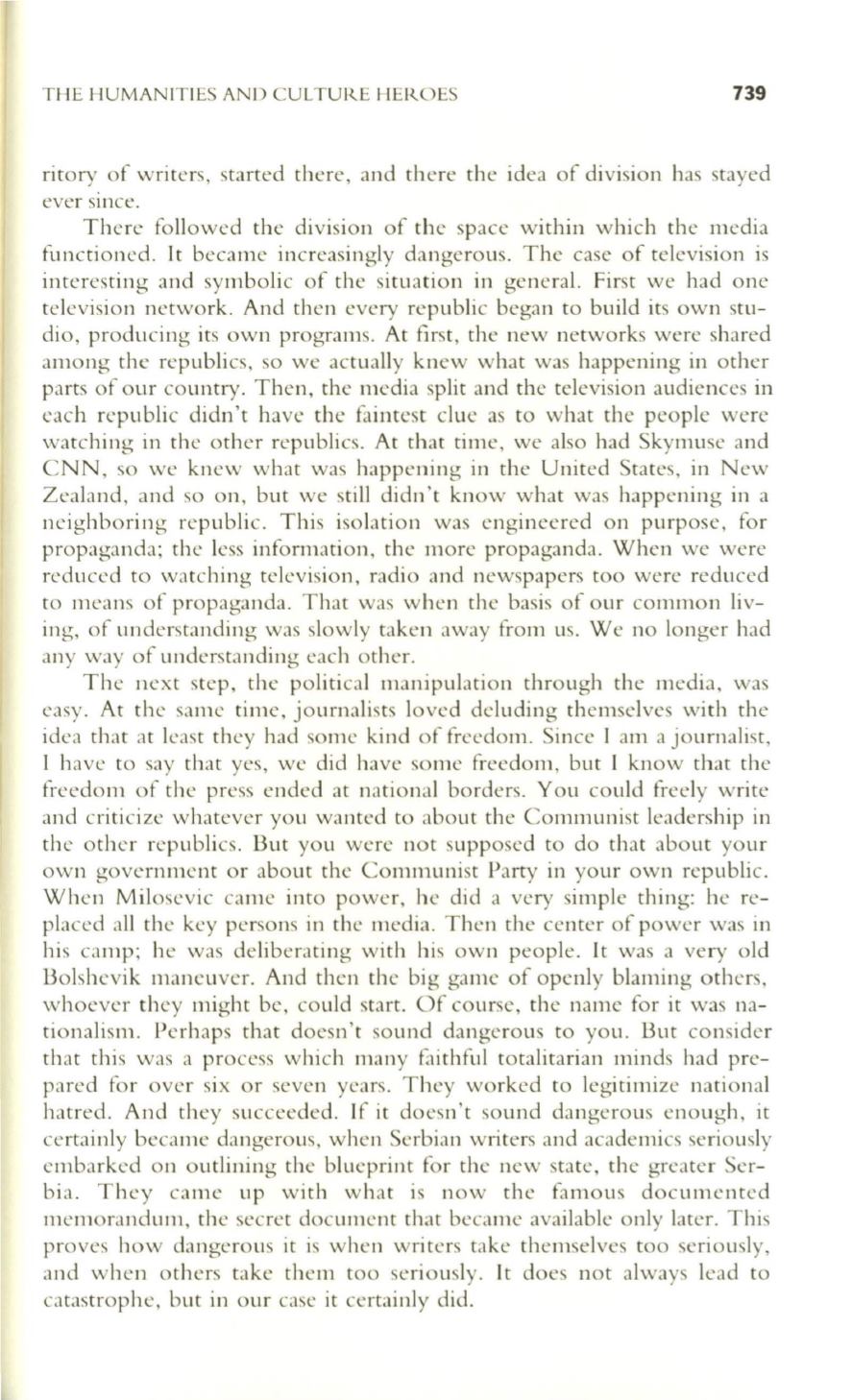
THE HUMANITIES AND CULTUR.E HER.OES
739
ritory of writers, started there, and there the idea of division has stayed
ever s1l1ce.
There followed the division of the space within which the media
functioned. It became increasingly dangerous. The case of television is
interesting and symbolic of the situation in general. First we had one
television network. And then every republic began to build its own stu–
dio, producing its own programs. At first, the new networks were shared
among the republics , so we actually knew what was happening in other
parts of our country. Then, the media split and the television audiences in
each republic didn't have the faintest clue as to what the people were
watching in the other republics. At that time, we also had Skymuse and
CNN, so we knew what was happening in the United States, in New
Zealand , and so on, but we still didn't know what was happening in a
neighboring republic. This isolation was engineered on purpose, for
propaganda; the less information, the more propaganda. When we were
reduced to watching television, radio and newspapers too were reduced
to means of propaganda. That was when the basis of our common liv–
ing, of understanding was slowly taken away from us. We no longer had
any way of understanding each other.
The next step, the political manipulation through the media, was
easy. At the same time, journalists loved deluding themselves with the
idea that at least they had some kind of freedom. Since I am a journalist,
I have to say that yes, we did have some freedom, but I know that the
freedom of the press ended at national borders. You could freely write
and criticize whatever you wanted to about the Communist leadership in
the other republics. But you were not supposed to do that about your
own government or about the Communist Party in your own republic.
When Milosevic came into power, he did a very simple thing: he re–
placed all the key persons in the media. Then the center of power was in
his camp; he was deliberating with his own people. It was a very old
Bolshevik maneuver. And then the big game of openly blaming others,
whoever they might be, could start. Of course, the name for it was na–
tionalism. Perhaps that doesn't sound dangerous to you. But consider
that this was a process which many faithful totalitarian minds had pre–
pared for over six or seven years. They worked to legitimize national
hatred. And they succeeded. If it doesn't sound dangerous enough, it
certainly became dangerous, when Serbian writers and academics seriously
embarked on outlining the blueprint for the new state, the greater Ser–
bia. They came up with what is now the famous documented
memorandum, the secret document that became available only later. This
proves how dangerous it is when writers take themselves too seriously,
and when others take them too seriously. It does not always lead to
catastrophe, but in our case it certainly did.


